In 2024, Animal Equality exposed cruelty, changed laws, and challenged industries across eight countries. These 10 photos reveal the moments that transformed animal protection.
Across these eight countries, Animal Equality’s advocacy brought the world closer to compassion last year.
These images are here to tell the story:
1. Redefining tradition at Nepal’s Gadhimai Festival
At Nepal’s 2024 Gadhimai Festival—the world’s largest animal sacrifice—investigators revealed what walls, smog, and police bans tried to hide. Thousands of animals were slaughtered, their final moments captured by Animal Equality’s cameras.
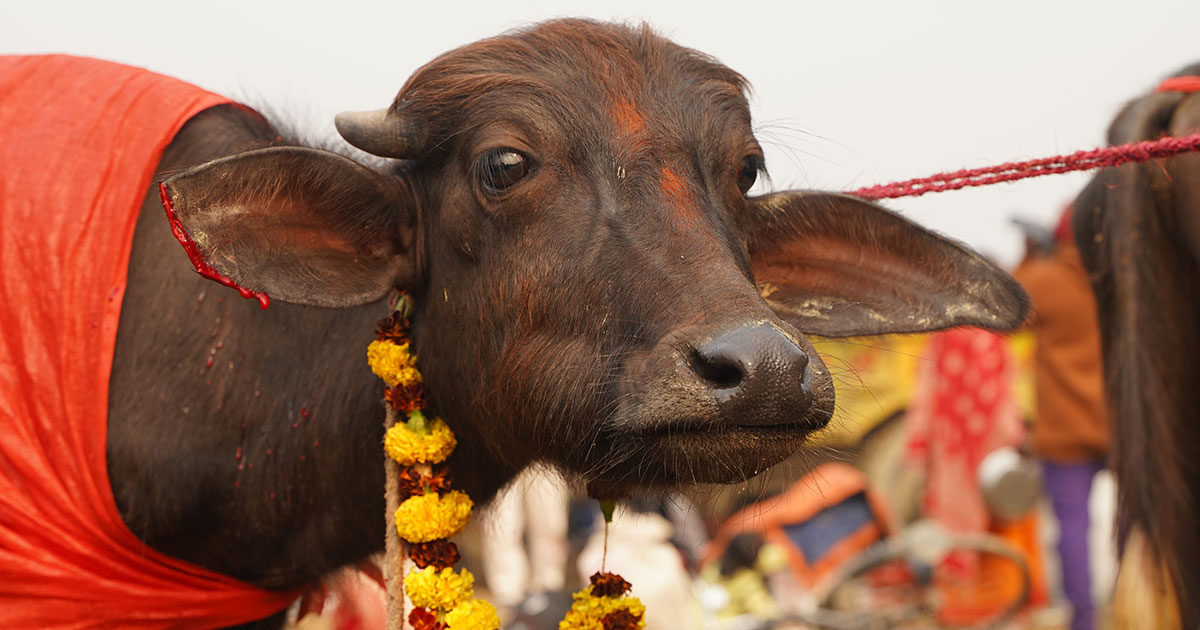
Buffaloes stood silently in line, witnessing the deaths ahead of them. Investigators engaged with devotees, sharing a truth long forgotten: animal sacrifice was never part of the festival’s origins.
This work builds on a 2014 ban on live animal transport across the India-Nepal border, achieved through Animal Equality’s lobbying. Each festival since has seen fewer animals slaughtered. In 2024, the shift was clear: traditions rooted in suffering are finding a new path forward.
2. Mexico includes animals in its Constitution
In December 2024, Mexico transformed animal protection by embedding it into the Constitution.
President Claudia Sheinbaum signed reforms to Articles 3, 4, and 73, giving Congress the authority to create the country’s first unified animal protection law. Schools will now include lessons on the importance of caring for animals, and the federal government will be held responsible for their care.

This comes after years of work by Animal Equality—conducting investigations, gathering over 100,000 petition signatures, and pressing lawmakers to act.
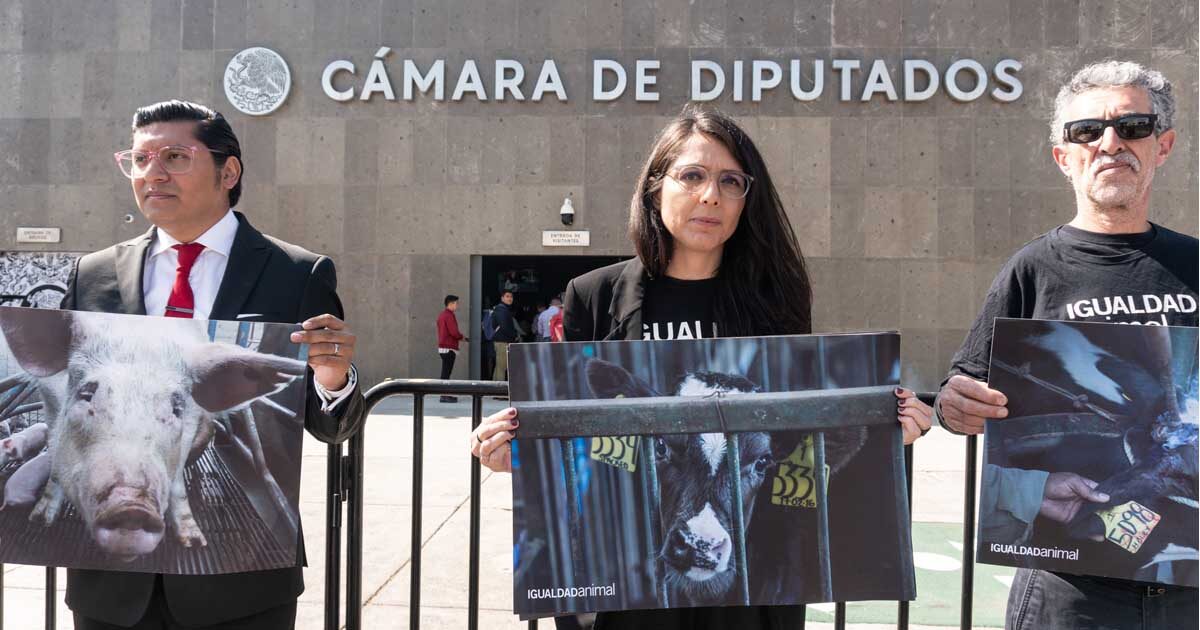
With the reforms in place, animals will be protected under the nation’s highest laws, shaping how future generations will view their place in the world.
3. Brazil: one step closer to ending male chick killing
Brazil’s egg industry stands at a proverbial fork in the road. In October, a government committee approved a bill–proposed at Animal Equality’s request–to stop the killing of male chicks.

Introduced by a congresswoman at Animal Equality’s request, the bill mandates the use of in-ovo sexing technology. This technology identifies the sex of embryos before they hatch, preventing male chicks from being born. In the egg industry, male chicks are often killed because they cannot lay eggs or grow quickly enough for meat production.
The bill must pass through three more committees before reaching the Senate. If passed, Brazil will set a global example for addressing this controversial issue.
4. Exposing Aldi’s double standard
A transparent truck displaying a gestation crate—a cage so small a pregnant pig can’t turn around—toured Germany’s largest cities. The display exposed Aldi’s double standard: these crates are banned in Germany but remain part of the company’s U.S. supply chain.
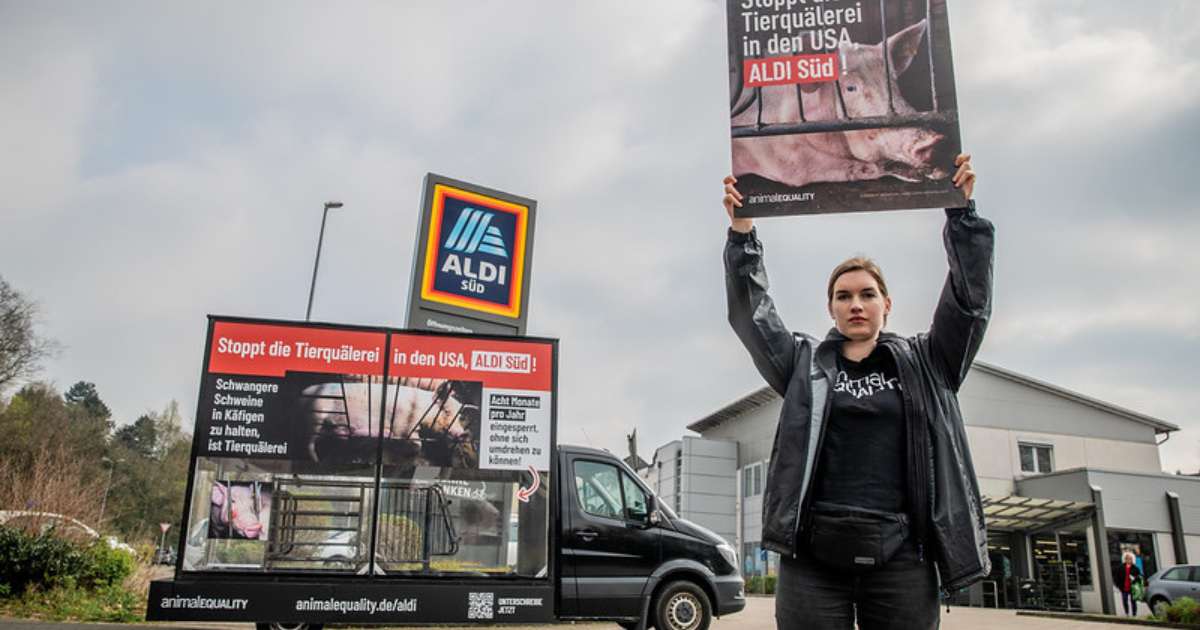
The tour ended with protests at Aldi’s headquarters, demanding global consistency in animal welfare. Meanwhile, U.S. protests added pressure. Animal Protectors—digital volunteers—flooded leadership with emails and raised awareness online.
Ready to make a difference from anywhere? Join this community of digital advocates and take action for animals today.
5. Europe creates a role for animal protection
The European Union reshaped policy in 2024 by creating the Commissioner for Health and Animal Welfare. For the first time, responsibility for farmed animals moved from Agriculture to Health, redefining it as a public concern.

This change followed years of advocacy through the #EUforAnimals campaign, backed by over 60 organizations, including Animal Equality. With increasing public support, the EU could set a global example by prioritizing animals over industry interests.
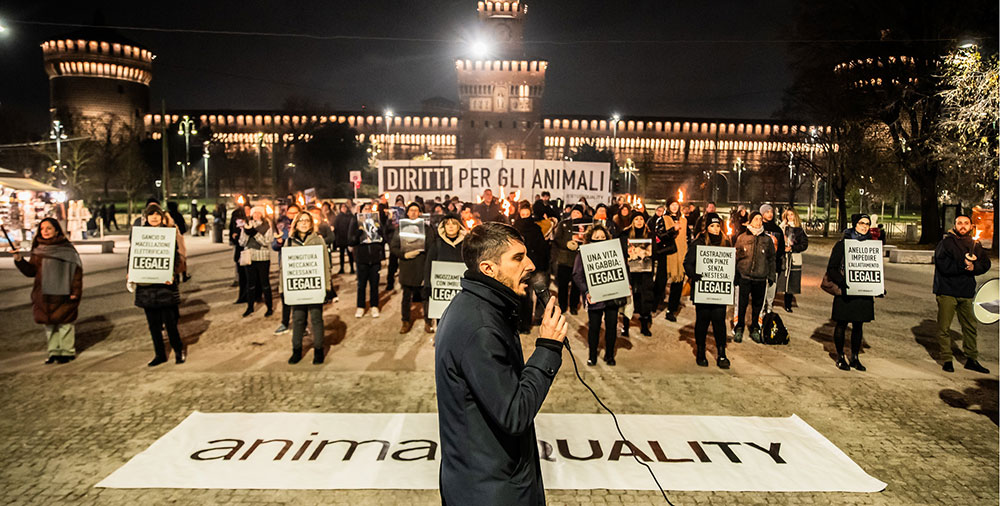
6. Taking on the UK salmon industry
In 2024, the UK’s High Court allowed Animal Equality to challenge the approval of the country’s first on-land salmon mega-farm. The farm would produce one million fish a year, raising concerns about animal suffering and environmental damage.
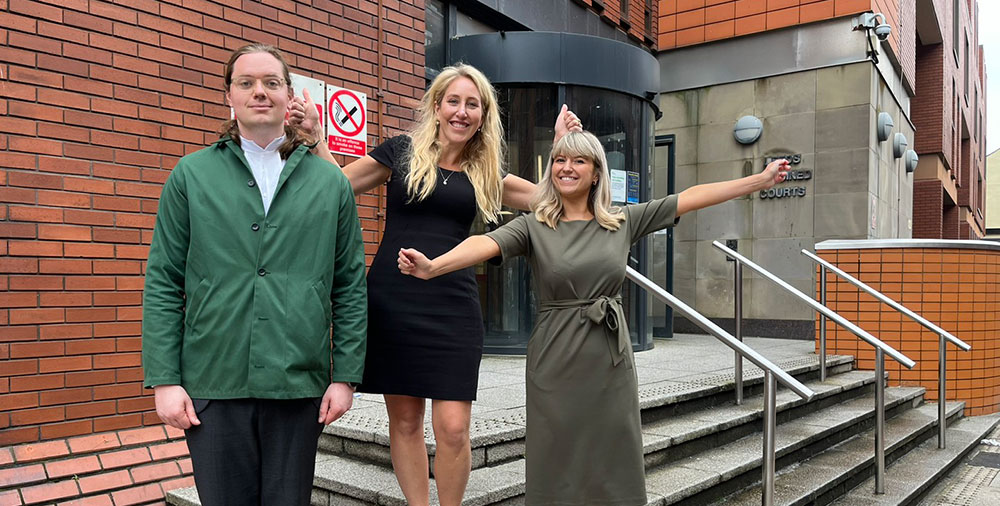
Animal Equality argues that North East Lincolnshire’s Council failed to consider these issues before approving the project. The case could delay or stop construction and prevent millions of fish from suffering in unnatural conditions.
7. Love Veg takes on Times Square
In January 2024, a Love Veg billboard lit up Times Square, offering a free plant-based cookbook. Thousands engaged with the campaign, which showcased how plant-based eating protects animals and reduces factory farming’s impact.

Ready to take a bite out of cruelty? Every plant-based meal challenges the factory farming industry and spares animals.
Join Love Veg today for free recipes, tips, and tools to make compassionate eating easy and meaningful.
8. UK Labour Party promises foie gras import ban
Before the July 2024 general election, the UK Labour Party pledged to ban foie gras imports made through force-feeding. Although production is illegal in the UK, imports keep these products in the market.
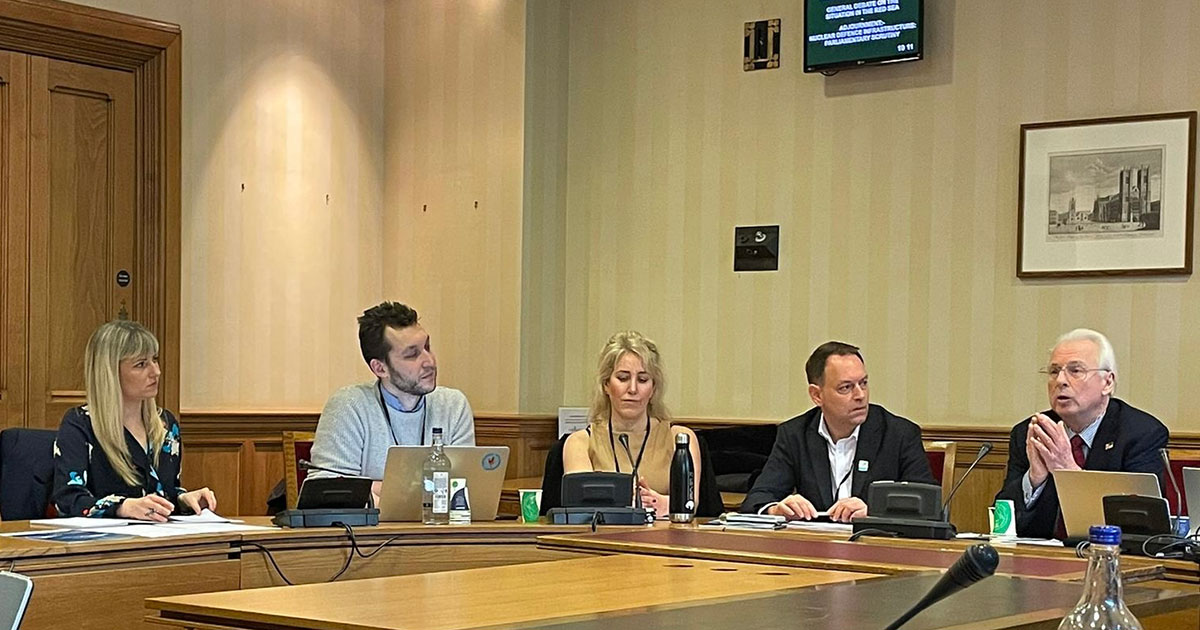
Animal Equality will continue working with Labour to ensure this promise becomes reality. Polls show most people in the UK oppose force-feeding, making this a step toward aligning policies with public values.
9. Ending live animal exports in the UK
The UK has banned live animal exports for fattening or slaughter, halting the transport of animals abroad to be raised or killed.
Live exports involve shipping animals—such as sheep, cows, and pigs—long distances in cramped conditions. These journeys often last hours or even days, with animals facing extreme temperatures, limited access to food and water, and injuries from overcrowding. Many do not survive the trip.
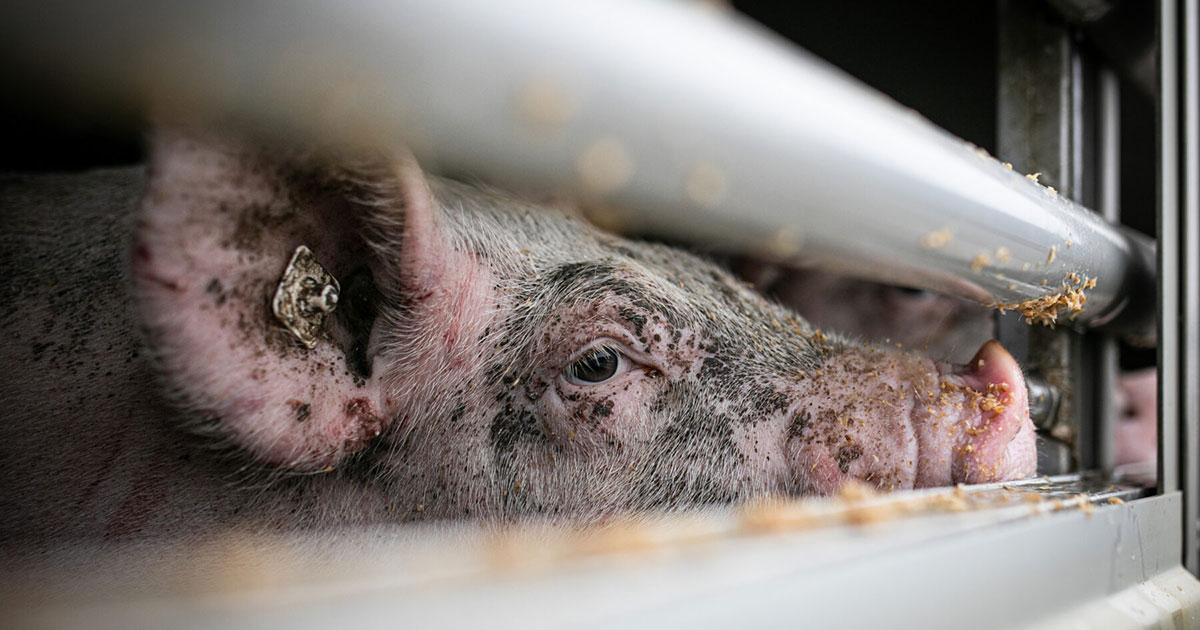
The ban followed 50 years of work by Compassion in World Farming (CIWF) and Kent Action Against Live Exports (KAALE), supported by Animal Equality. Animal Equality contributed through protests, government meetings, and media efforts, including an article in The Ecologist by its UK Executive Director.
This ban spares millions of animals each year, addressing a practice that has faced criticism for decades.
- Animal Equality in the media
In 2024, Animal Equality’s work made headlines around the world:
- Germany: Pig farm abuse aired on Das Erste, Germany’s top broadcaster.
- Italy: Pig slaughter footage featured on TGR Lombardia and other outlets.
- UK: Salmon and pig farm investigations aired on The Guardian, BBC Scotland, The Daily Mail, and The Times.
- United States: Reuters covered Animal Equality’s campaign against Denny’s use of crates for pregnant pigs.
- Global: Animal Equality’s campaign to remove foie gras from the Olympic VIP menu was covered by The Independent, Forbes, and Le Monde.

Javier Moreno, co-founder and Communications Director of Animal Equality, speaking to media during a demonstration in Madrid, Spain.
Take action for animals in 2025
Animal Equality’s progress in 2024 shows what’s possible–but there’s still more to do.
Become an Animal Protector: Join the movement to hold companies accountable through emails, social media, and more.
Join Love Veg: Discover plant-based recipes, tips, and resources to make compassionate eating simple and impactful.




















